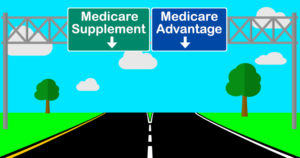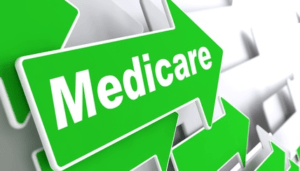Medicare and People with HIV

Imagine a world where HIV no longer has the power to devastate millions of lives. Although a vaccine isn’t available yet, early detection and effective treatment can significantly improve lives. Medicare plays a crucial role in providing comprehensive support for individuals living with HIV.
This guide covers essential Medicare benefits for people with HIV, ensuring you understand the coverage available to manage your health effectively.
Understanding HIV
HIV (Human Immunodeficiency Virus) attacks and weakens the immune system by targeting protective CD4+ cells. Early HIV symptoms often mimic flu-like signs, including:
- Body pain
- Fatigue
- Fever
- Headache
- Rash
- Sore throat
- Diarrhea
- Mouth or genital ulcers or infections
Untreated HIV can progress to AIDS, but advancements in diagnosis and treatment have greatly improved life expectancy and reduced transmission risk.
Immediate Steps After HIV Diagnosis
Upon diagnosis, start antiretroviral therapy (ART) promptly. Your healthcare provider will monitor bloodwork, symptoms, and side effects throughout treatment. Fortunately, Medicare covers costs associated with prevention, diagnosis, and treatment of HIV.
Medicare Coverage for HIV Treatment
Approximately 25% of people with HIV receive Medicare benefits. Here’s a breakdown of available coverage:
Medicare Part A
Covers inpatient care, including:
- Hospital stays
- Hospice care
- Skilled nursing facilities (short-term)
- Limited home healthcare
Medicare Part B
Covers outpatient services, including:
- Doctor and specialist visits
- Preventative screenings (annual HIV tests for ages 15-65, three times a year if pregnant)
- Lab tests, imaging, and diagnostics
- Medications administered in outpatient facilities
- Durable medical equipment (e.g., hospital beds, wheelchairs)
- Mental health counseling
Medicare Part C (Medicare Advantage)
Private health plans combining Parts A and B, often including prescription drugs, dental, and vision care. Special Needs Plans (SNPs) offer tailored benefits for those with HIV.
Medicare Part D (Prescription Drugs)
Covers HIV medications taken at home, including essential antiretroviral therapies. Formularies cover necessary HIV drugs like:
- Integrase Inhibitors (Dolutegravir, Raltegravir)
- Protease Inhibitors (Darunavir, Ritonavir)
- Nucleotide Reverse Transcriptase Inhibitors (Abacavir, Zidovudine)
- Non-Nucleoside Reverse Transcriptase Inhibitors (Nevirapine, Efavirenz)
- Cytochrome P4503A Inhibitors (Cobicistat, Ritonavir)
Medigap (Supplemental Insurance)
Medigap policies cover expenses not fully covered by Original Medicare, such as:
- Part A and B deductibles, coinsurance, and copayments
- Emergency coverage abroad
Medigap does not cover prescription drugs; consider Part C or Part D for additional coverage.
Treatments Not Covered by Medicare
Medicare does not cover:
- Long-term custodial care
- Stem cell therapy (for HIV)
- Alternative therapies (except acupuncture for lower back pain)
Get Expert HIV Medicare Guidance in New York
Managing Medicare coverage can be complicated, especially for those living with HIV. Plan Medicare provides expert guidance to help you choose the best coverage for your needs.
Call us today at 516-900-7877 or schedule a consultation online to secure comprehensive Medicare coverage tailored specifically for you.
Frequently Asked Questions (FAQs)
Can I Receive Home Healthcare for HIV Under Medicare?
Yes, Medicare covers limited short-term home healthcare services like skilled nursing, therapy, and assistance with daily activities.
Are People with HIV Eligible for Medicare?
Yes, people with HIV are eligible for Medicare if they meet age or disability criteria.
Can Medicare Deny Coverage for HIV?
No, Medicare coverage cannot be denied based on HIV status due to protections under the Affordable Care Act.
Does Medicare Cover HIV Prevention (PrEP)?
Yes, Medicare covers Pre-Exposure Prophylaxis (PrEP), including doctor visits, lab tests, and medications for individuals at high HIV risk.





